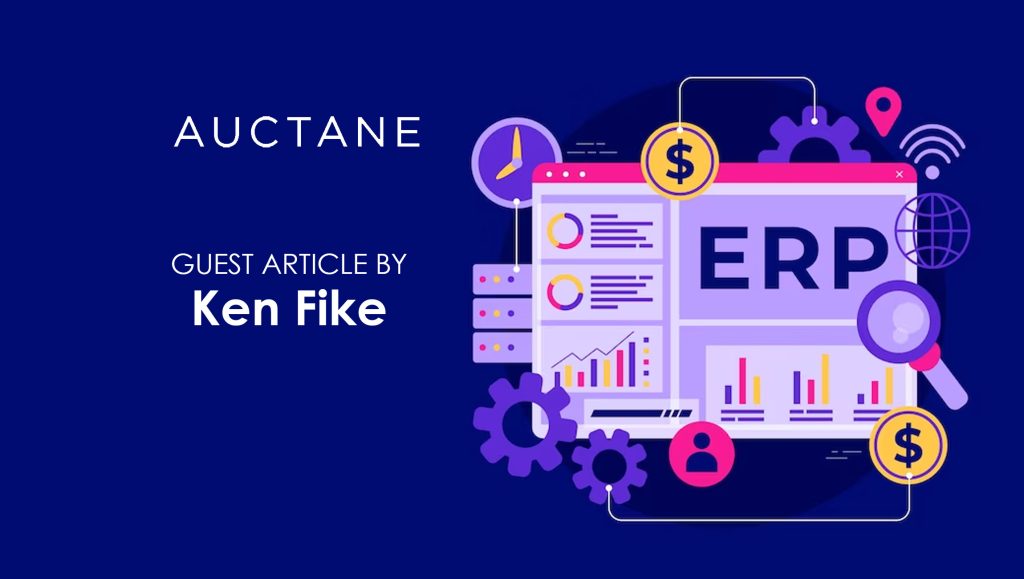The ecommerce industry is constantly evolving, and staying ahead of the competition requires businesses to continuously re-evaluate the ways they work. Too often, ecommerce companies work across multiple platforms and interfaces and are manually tracking what’s happening in between them – resulting in data silos, inefficient processes, and stunted growth. This is where Enterprise Resource Planning (ERP) systems come into play. An ERP can help your business manage all its critical operations within one platform.
I know what you’re thinking, and no – ERPs aren’t just reserved for large retailers with vast operations and data sources. Smaller ecommerce businesses can benefit from adopting an ERP that fits specific needs now, so that later, they can grow into fuller suites of features. In the fast-paced ecommerce industry, exponential growth can happen at any time, so an early-adoption approach will help future-proof your business and set you up for long-term success.
Here, we’ll explore what an ERP is, some telltale signs that your business is ready to adopt one, and how to choose an ERP that aligns with your unique business needs now and down the road.
Unpacking the Power of ERP
Before we dive into how and when to use an ERP, let’s take a step back and demystify what they are. ERP stands for Enterprise Resource Planning. It’s a software solution designed to be the “backbone” of a business by connecting and automating the functions of various departments – like finance, human resources, supply chain, manufacturing, customer relationship management, the list goes on.
In short, ERPs streamline operations by centralizing your data. They eliminate the need for manual data entry across departments, which reduces errors and makes access to critical information much easier. As a result, your employees can make decisions faster, focus on higher-value activities, ensure better customer experiences, and ultimately scale.
When to Adopt an ERP
There’s no one-size-fits-all answer to the question of “when?” – but in our opinion, the sooner, the better. There are a few big indicators that an ecommerce business is ready to adopt an ERP.
- Rapid growth: When your business grows, so does your customer base, your inventory, and the markets you serve. When faced with exponential growth over a short period of time, an ERP can help you maintain control of massive amounts of new, incoming data without hiccups.
- Your customers’ expectations are increasing: With rapid growth comes heightened customer expectations, and ecommerce customers in particular demand quick responses and accurate orders, every time. An ERP can help you meet these expectations by providing real-time visibility into customer data, order statuses, and inventory levels. ERPs also allow sales, marketing, and customer support teams to seamlessly access historical customer data, empowering them to respond to requests faster and more accurately.
- You’re facing new regulatory compliance: As your business expands, regulatory demands become more complex. An ERP can simplify compliance through integrated controls, audit trails, and automated procedures to ensure adherence to regulations.
Read More: SalesTechStar Interview with Abigail Salvador, Sr. Growth Account Executive at Gong
Choosing the Right ERP
If you read through the last section and are thinking “yes, that’s my business,” once or twice, you’re ready to explore the next step: choosing the right ERP. Selecting the perfect ERP for your business can feel daunting – there are so many options and potential needs that could be fulfilled. However, don’t over complicate it – the decision you make should rely on two factors: quick onboarding and long-term success. Here’s how we recommend getting started.
- Understand your requirements: Take a step back and assess your business needs. What specific processes and functions do you want an ERP to handle? There are so many to choose from. Inventory management, order processing, financial management, and customer relationship management could be a great place to start. By identifying your requirements, you can narrow down your choices to ERP systems that align with your specific goals.
- Prioritize integration capabilities: Your ERP should seamlessly integrate with other software solutions you’re already using, such as your ecommerce platform, CRM, and accounting software. More specifically, the ability to integrate your ERP with shipping software is a must-have in the ecommerce industry. This type of connection will empower you to manage and generate shipments for orders across all your platforms: selling channels, warehouses, order sources, ORMs, system connectors, the list goes on! This functionality is critical for a multi fulfillment strategy.
- Make sure onboarding and training is included: As you transition to an ERP, you’ll want expert guidance to ensure a smooth onboarding. This will be a big adjustment, and you’ll need support to get to your implementation end goal.
- Keep cost at the forefront: Finally, consider the cost of the ERP system – they can get pricey if you don’t know exactly what you’re looking for. Evaluate not only the initial implementation costs, but also ongoing expenses, like licensing fees and maintenance. In our opinion, ERPs don’t always have to be a 6-digit annual investment. As ERP solutions move down market, some of their core features can be used standalone — allowing you to pay for only what you need.
Adopting an ERP can be a game-changer for your ecommerce business. It streamlines operations, enhances decision-making, and improves customer experiences – all critical components of surviving and thriving in the rapidly evolving ecommerce industry. However, it’s a daunting task – there’s so much choice, and not nearly enough resources to understand all the options! By understanding the ins and outs of ERPs, identifying the most common use cases for adoption, and having an evaluation game-plan, you’re on the right track to making that decision and enabling long-term growth.
Read More: What Marc Benioff Taught Me About Building a Great Company




















